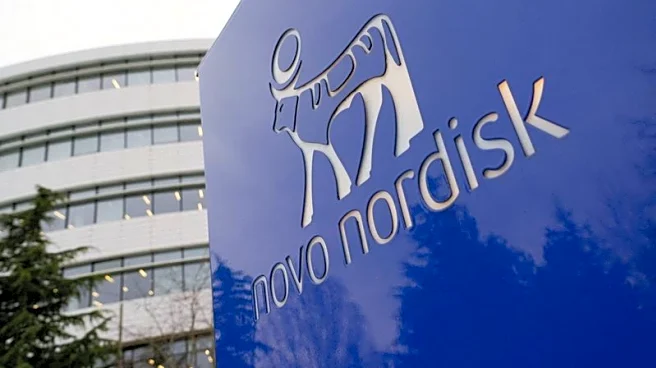What is the story about?
What's Happening?
Columbia University researchers have developed a potential universal antiviral therapy inspired by a rare immune disorder. The therapy, which mimics the inflammation signature of the disorder, uses mRNA technology to produce ten proteins that provide broad antiviral protection. In animal trials, this mRNA-based treatment successfully stopped the replication of influenza and COVID-19 viruses, demonstrating its potential as a broad-spectrum antiviral. The therapy aims to offer protection against various viruses by temporarily activating the immune system, similar to the antiviral benefits observed in individuals with ISG15 deficiency.
Why It's Important?
The development of a universal antiviral therapy could significantly impact public health by providing a new tool to combat viral infections, including future pandemics. This approach could protect vulnerable populations, such as first responders and nursing home residents, from a wide range of viruses. The therapy's ability to activate the immune system without causing excessive inflammation offers a promising alternative to traditional antiviral treatments. If successful, this technology could revolutionize how viral infections are managed, reducing reliance on specific vaccines and treatments.
What's Next?
The researchers are focused on optimizing the drug delivery and absorption properties of the therapy to ensure its effectiveness in humans. Further studies are needed to determine the duration of antiviral protection and to address challenges in delivering nucleic acids to targeted areas in the body. The team aims to advance the therapy to human trials, potentially providing a universal antiviral solution for future viral outbreaks.
















